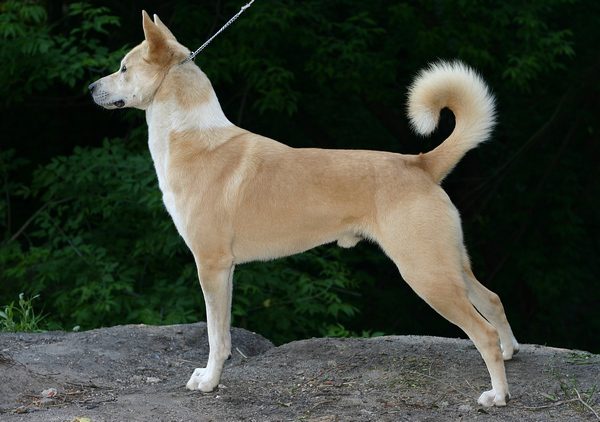Key Takeaways:
- Boxers are a medium-sized dog breed known for their playful and energetic nature.
- They require regular exercise and mental stimulation to prevent boredom and destructive behavior.
- Boxers are loyal and protective, making them excellent family pets and watchdogs.
- Proper training and socialization from an early age are essential for Boxers to develop good behavior and manners.
- Regular grooming, including brushing their short coat and cleaning their ears, is necessary to keep Boxers healthy and clean.
Are you ready to discover the fascinating world of Boxer dogs? These lovable and energetic canines have captured the hearts of countless dog lovers around the globe. By exploring the characteristics and care of this remarkable breed, you will unlock a treasure trove of knowledge that will not only deepen your understanding but also enrich your relationship with these loyal companions. Whether you're considering bringing a Boxer into your home or simply intrigued by their captivating nature, delving into this subject is an essential step towards becoming a responsible and informed dog owner. So, let's embark on this journey together as we uncover everything you need to know about Boxers – from their playful personalities to their unique care requirements. Get ready to be amazed by these incredible four-legged friends!
What is a Boxer Dog and What Makes Them Unique?
The Origin and History of Boxer Dogs
Boxer dogs are a breed that originated in Germany in the 19th century. They were developed by crossing English Bulldogs with German Bullenbeissers, which were used for hunting large game. The result was a strong and agile dog with a powerful jaw.
Boxer dogs are known for their unique appearance and distinctive square-shaped head. They have a short coat that can come in various colors, including fawn, brindle, and white. One of the most striking features of Boxers is their muscular build and strong physique.
The Personality Traits of Boxer Dogs
Boxer dogs are known for their friendly and playful nature. They are highly energetic and love to be around people. Boxers are often described as being loyal, intelligent, and protective of their families.
This breed is also known for its clownish behavior, as they tend to be quite silly and entertaining. They have a natural curiosity and can be quite mischievous at times. Despite their playful nature, Boxers can also be gentle and patient with children.
The Appearance of Boxer Dogs Compared to Other Breeds
Physical Characteristics of Boxer Dogs
Boxers have a medium-sized body with a square-shaped build. They have a broad chest, muscular shoulders, and strong legs. Their head is proportionate to their body size, with a distinctively wrinkled forehead.
Their coat is short and smooth, which makes grooming relatively easy compared to other breeds with longer or more textured fur. Boxers also have an underbite, meaning their lower jaw protrudes slightly beyond the upper jaw.
Comparison to Other Breeds
Compared to other breeds, Boxers have a unique combination of strength and agility. Their muscular build allows them to be powerful and athletic, making them excellent working dogs in various fields.
In terms of appearance, Boxers may resemble Bulldogs due to their square-shaped head and stocky body. However, they are more agile and active than Bulldogs, making them better suited for activities that require endurance and speed.
The Temperament and Behavior of Boxer Dogs
Lively and Energetic Nature
Boxer dogs are known for their high energy levels. They love to play and engage in physical activities. Regular exercise is essential for this breed to prevent boredom or destructive behavior.
Boxers are also highly sociable animals. They enjoy being around people and can get along well with other pets if properly socialized from an early age. They thrive on attention and affection from their owners.
Protective Instincts
One notable trait of Boxer dogs is their protective nature. They are naturally inclined to protect their families and can be wary of strangers. This makes them excellent watchdogs who will alert their owners if they sense any potential threat.
However, it's important to note that proper training is necessary to ensure that the protective instincts of Boxers do not become overly aggressive or reactive towards harmless situations.
Important Aspects to Consider When Caring for a Boxer Dog
Dietary Needs
A balanced diet is crucial for maintaining the health and well-being of a Boxer dog. It's important to provide them with high-quality dog food that meets their nutritional requirements. Avoid overfeeding as obesity can be a concern for this breed.
Additionally, Boxers are prone to certain food allergies, so it's essential to monitor their diet and consult with a veterinarian if any dietary sensitivities arise.
Grooming and Hygiene
Boxers have a short coat that requires minimal grooming. Regular brushing helps remove loose hair and keeps their coat clean. They should also receive regular baths to maintain good hygiene.
It's important to pay attention to their ears as Boxers are prone to ear infections. Cleaning their ears regularly and checking for any signs of redness or discharge can help prevent such infections.
Training Tips for Boxer Dogs: Can They Be Easily Trained?
Their Intelligence and Trainability
Boxer dogs are intelligent and eager to please, which makes them relatively easy to train. They respond well to positive reinforcement techniques such as rewards, praise, and treats.
Consistency is key when training a Boxer. Short training sessions with clear instructions work best. It's important to start training from an early age to establish good behavior habits.
Socialization and Obedience Training
Socialization is crucial for Boxers to ensure they grow up well-rounded and friendly towards other animals and people. Exposing them to various environments, sounds, and experiences from an early age will help prevent fear or aggression issues later on.
Obedience training is also essential for Boxers as it helps establish boundaries and ensures they follow commands. Basic commands like sit, stay, come, and leash walking should be taught consistently using positive reinforcement techniques.
Common Health Issues in Boxer Dogs and How to Prevent or Manage Them
Dilated Cardiomyopathy (DCM)
Boxers are prone to developing Dilated Cardiomyopathy, a condition that affects the heart's ability to pump blood effectively. Regular veterinary check-ups and heart screenings can help detect early signs of DCM.
A balanced diet, regular exercise, and avoiding excessive heat or stress can help prevent or manage this condition. Medications may be prescribed by a veterinarian if necessary.
Hip Dysplasia
Hip dysplasia is a common orthopedic issue in Boxers. It is a condition where the hip joint doesn't develop properly, causing pain and mobility issues. Maintaining a healthy weight and providing regular exercise can help reduce the risk of hip dysplasia.
In severe cases, surgery may be required to correct the joint abnormalities. Regular veterinary check-ups and X-rays can help diagnose and monitor this condition.
Exercise Needs and Activities to Keep Your Boxer Dog Active and Engaged
High Energy Levels
Boxers have high energy levels and require daily exercise to stay physically and mentally stimulated. A lack of exercise can lead to behavioral problems such as hyperactivity or destructive behavior.
Engaging in activities like brisk walks, jogging, playing fetch, or participating in dog sports like agility training can help meet their exercise needs. Interactive toys that challenge their problem-solving skills are also beneficial.
Mental Stimulation
In addition to physical exercise, Boxers need mental stimulation to prevent boredom. Puzzle toys or interactive feeding toys can provide mental challenges while rewarding them with treats or food.
Training sessions that incorporate obedience commands or learning new tricks also provide mental stimulation for Boxer dogs. This breed thrives on learning and enjoys having tasks to accomplish.
In conclusion, Boxers are a friendly and energetic dog breed that requires regular exercise and mental stimulation. With proper care and training, they can make great companions for families who are active and committed to their well-being.
Are boxers high maintenance?
Taking care of a boxer requires attention and effort because they are energetic dogs with high exercise requirements. If you enjoy being active and going for walks, a boxer may be a suitable breed for you. It is important to have a spacious and secure garden for a boxer, so they have enough room to release their energy.
What is the personality of a Boxer dog?
Boxers are intelligent dogs with high energy levels and a playful nature. They enjoy staying active and need mental stimulation. Their temperament is a result of their breeding, and they are known to be loyal pets who are protective of their family and home. While they are alert and wary of strangers, they do not tend to bark excessively.
Is a Boxer a good house dog?
Boxers are an ideal choice for families with children and other animals, including cats, because they are patient and protective when properly socialized. Owners of Boxers often feel a strong sense of loyalty towards this breed and claim that once you own a Boxer, you'll never want any other breed.
Are boxers easy to potty train?
Boxer dogs are known for being very clean and easily trainable when it comes to potty training. It is important to remember that puppies will need to go to the bathroom shortly after eating, drinking, sleeping, or playing. It is recommended to consistently take them to the same designated spot to go potty. Once they successfully go, it is beneficial to reward them with either a treat or praise.
Do boxers bond with one person?
Boxers are popular for their loving personalities and their strong attachment to their human families. Due to their deep emotional connection, they often require more attention than certain other breeds.
What is the life expectancy of a boxer dog?
Boxers typically have a lifespan of 10-12 years. They are classified as a large breed and can weigh up to 80 pounds when fully grown. Due to their size, boxers tend to have shorter lifespans compared to smaller breeds, with most large dogs living shorter lives than small dogs.
















